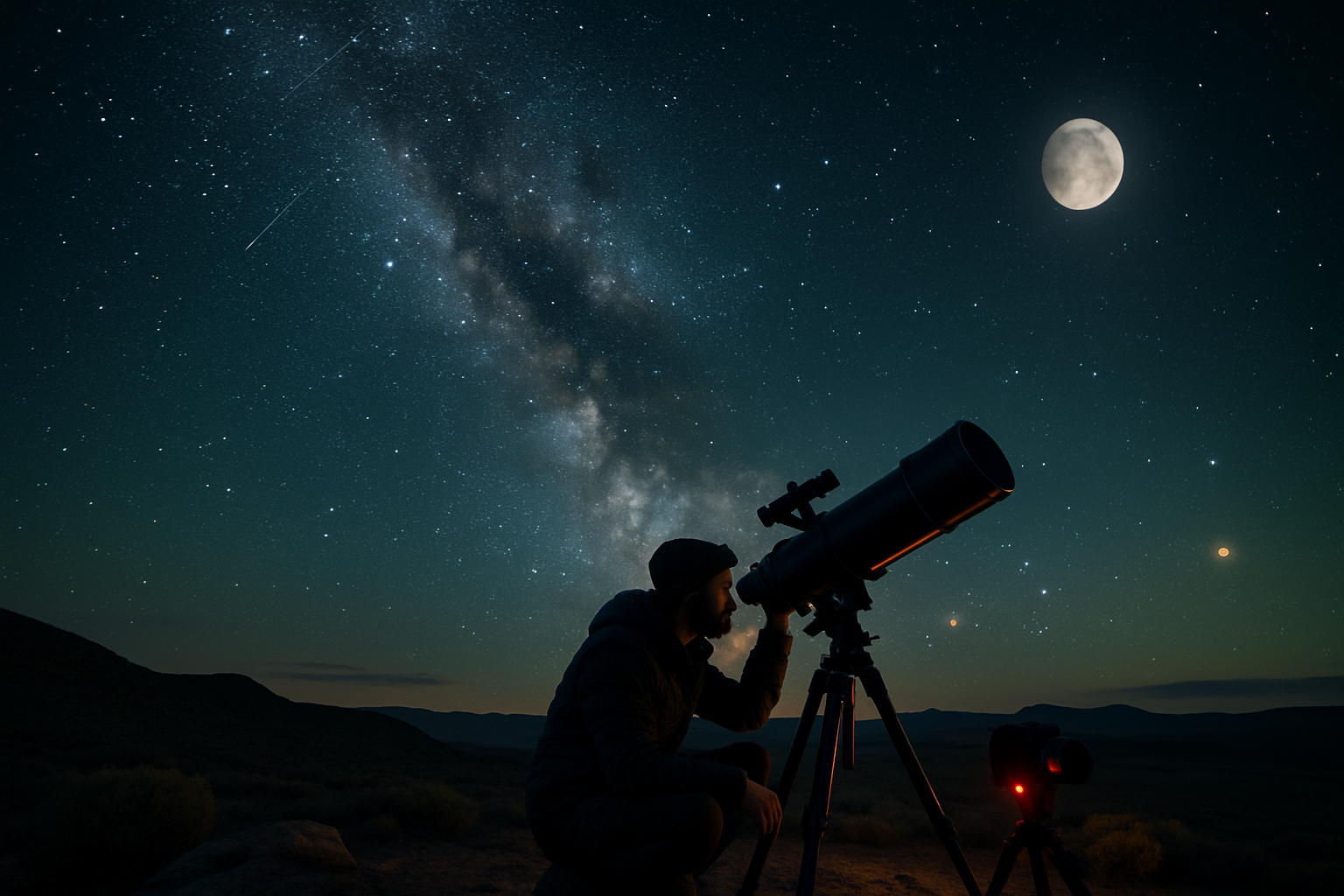Astrotourism: Stargazing Adventures Redefining Travel
The night sky has always captivated humanity, inspiring wonder and curiosity. Now, a new travel trend is emerging that combines our fascination with the cosmos and our desire for unique experiences. Astrotourism, the practice of traveling to destinations ideal for stargazing, is rapidly gaining popularity among adventure seekers and astronomy enthusiasts alike. This celestial-focused travel niche offers a fresh perspective on exploration, inviting travelers to embark on nocturnal journeys that redefine our connection with the natural world and expand our understanding of the universe.

Astronomical Events Driving Travel Plans
Astrotourism isn’t just about finding dark skies; it’s also about timing trips to coincide with spectacular astronomical events. Solar eclipses, meteor showers, and rare planetary alignments are now driving factors in travel planning for many enthusiasts. Tour operators and destinations are capitalizing on this trend, offering specialized packages that combine luxury accommodations with expert-led stargazing sessions and astrophotography workshops. These events create a sense of urgency and exclusivity, prompting travelers to venture to far-flung locations for once-in-a-lifetime celestial experiences.
Technology Enhancing the Stargazing Experience
Advancements in technology have significantly enhanced the astrotourism experience. Portable telescopes, night-vision equipment, and astrophotography gear have become more accessible to amateur stargazers. Many dark sky destinations now offer state-of-the-art observatories and planetariums, allowing visitors to delve deeper into the mysteries of the cosmos. Mobile apps that provide real-time star maps and celestial event notifications have also made it easier for travelers to plan and enjoy their stargazing adventures, regardless of their level of astronomical knowledge.
Cultural and Educational Dimensions of Astrotourism
Astrotourism often intersects with cultural and educational experiences, offering a multifaceted approach to travel. Many destinations integrate local mythology and astronomical traditions into their offerings, providing a rich cultural context to stargazing activities. Indigenous star lore tours, for example, have gained popularity, allowing travelers to learn about different cultural perspectives on the night sky. Additionally, partnerships between tourism boards and scientific institutions have led to the development of educational programs that cater to both casual observers and serious amateur astronomers, fostering a deeper appreciation for space science.
Sustainable Practices in Astrotourism
As astrotourism grows, so does the emphasis on sustainable practices to preserve dark skies. Destinations are implementing strict lighting regulations, while tour operators are adopting low-impact policies to minimize environmental disturbance. This focus on sustainability not only protects the night sky but also aligns with the increasing demand for eco-conscious travel options. Astrotourism thus presents an opportunity for destinations to develop sustainable tourism models that benefit both visitors and local communities while preserving natural resources.
Celestial Travel Tips & Cosmic Facts
• Best viewing times are typically two hours after sunset and two hours before sunrise
• The new moon phase offers the darkest skies for optimal stargazing
• Red-light headlamps help preserve night vision during stargazing sessions
• The Atacama Desert in Chile is considered one of the best places on Earth for stargazing
• Light pollution affects 80% of the world’s population, making dark sky preservation crucial
• The Aurora Borealis is visible from over 20 countries in the Northern Hemisphere
• Astrophotography requires specialized equipment and techniques for capturing celestial images
• Some hotels now offer in-room telescopes and stargazing guides as part of their amenities
Astrotourism represents a compelling fusion of science, nature, and adventure, offering travelers a unique way to explore the world and beyond. As this trend continues to evolve, it promises to open up new frontiers in travel, encouraging us to look up and marvel at the vastness of the universe. By fostering a deeper connection with the cosmos, astrotourism not only enriches our travel experiences but also promotes a greater understanding of our place in the universe, making it a truly transformative form of exploration.






